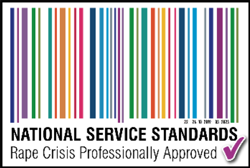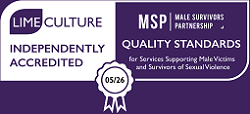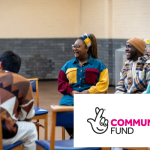Understanding Sexual Violence & Abuse in South Asian Communities
“It’s a lot to do with honour, society and reputation”: Understanding Sexual Violence & Abuse in South Asian Communities
As part of our work for Sexual Abuse and Sexual Violence Awareness Week, Notts SVSS have invited Al-Hurraya to write a guest blog. Working to a peer-led approach, Al-Hurraya focusses on the experiences of survivors in diverse and particularly South Asian communities, they have also been funded to provide training on the needs of survivors from diverse communities. Our colleagues there were more than happy to share their knowledge and understanding of how sexual violence and abuse impacts the individuals they work with, including barriers to support and possible solutions.
This blog post reads like a conversation that you can sit and listen in on with a warm cuppa. We invite you to explore our colleagues’ experiences not only as professionals, but also individuals who grew up in South Asian communities themselves…
Al-Hurraya is a charity organisation serving the needs of culturally diverse communities across issues such as addiction, domestic abuse, sexual abuse, modern day slavery, gang-involvement and youth violence. Rooted with a culturally sensitive, person-centered, peer-led approach, Al-Hurraya tackles the needs-provisions gap between ethnic minorities and mainstream provisions both in Nottingham and in Derby.
Today, we are joined by Zahida Mahmood, Al-Hurraya’s safeguarding lead and the head of the Domestic Violence and Sexual Abuse service, supported by Hazwa Aslam, who is a culturally sensitive support worker and counsellor, and Karina who leads the Children Affected by Domestic Abuse (CADA) service at Al Hurraya. In conversation with Anam Fatima, Al-Hurraya’s digital communications lead, the team reflect on their professional experience to shed light on the unique challenges, experiences, and needs of sexual violence and abuse survivors from South Asian backgrounds face.
What exactly are we talking about when we talk about sexual violence and sexual abuse? Is there a difference between the two?
Zahida: Sexual violence and abuse can be very similar. Sexual abuse can be ongoing and covert. Sexual violence includes sexual assault and rape, you know, where it’s rather openly and visibly, but abuse can be done very subtly and can be kept a secret, if that makes sense. If I were to give an example, I’d talk of sexual abuse in terms of grooming. Sexual abuse can be behind closed doors with somebody that you know.
Hazwa: Sexual violence is a bit more obvious in the sense like there’s rape or inappropriate touching, it’s more visible.
Do you find differences in cases that come to you from British South Asian communities and those that are asylum seekers or refugees?
Zahida: I would say that there is a little bit of a difference when it comes to people who reside here because they know what course of action is possible, where they can go for support in the case of an incident. Whereas people who come in as refugees or asylum seekers don’t know local laws and outlets of support.
Hazwa: Like Zahida said, sometimes, they don’t have the language to communicate. Even the basics like “Where can I go to get help?”
They can’t ask that because they don’t know the language. I think there is a need for us to extend our hand to refugees or asylum seekers. Whereas, local citizens may have some idea on where to go.
Zahida: There’s also a difference between people who’ve been brought up here and refugees or asylum seekers with regards to community. Yeah. There’s around what sort of impact is reporting going to have on their reputation– the judgment on the family, the family not believing that it’s happened to them. There’s a lot of honour based abuse as well, especially, for example, if they can’t have a boyfriend or sex before marriage, that sort of thing. So sexual violence is judged in a very negative way and it’s hidden.
We are seeing people reporting it now and having the confidence to do so, but I think the community itself is scared of reporting. Black, Asian, and diverse communities are 40% less likely to report abuse to the police. And I think part of that, um, is due to the stigma of sexual violence, you know, within our South Asian community, or even the Black community, not being believed and not having that support in the community either. Right. There’s definitely some very, I think there’s unique barriers to each community when it comes to accessing support and even being able to conceptualise what’s happening to them.
Karina, you’re handling the CADA team here at Al-Hurraya, and I wanted to ask if you see particular patterns in cases that you work with. Do you find that children affected by sexual abuse or sexual violence, specifically within the South Asian context, have unique patterns or unique issues that perhaps aren’t reflected in the cultural majority?
Karina: I think one of the biggest differences is in South Asian cultures, things are expected to be kept a secret, so a lot of these children are not allowed to talk about these things. When they do end up talking about it, it’s minimised a lot because [they think] ‘What if this gets out and what if, the society judges my family? So let’s not talk about it. Let’s just avoid the conversation altogether.’ And if the conversation does end up happening, I’ve had a case where the mother literally told the child “let’s not talk about it, we’re just gonna ignore it and just, we’ll make sure you’re safe at home, but let’s not discuss this.”
And what cultural factors do you think are at play here that creates such situations or creates such norms where people from South Asian backgrounds want to keep it under wraps?
Karina: There’s definitely quite a lot happening behind the scenes that sets the stage for expectations like ‘this shouldn’t be talked about, this shouldn’t be addressed, we’ll handle it on our own, let’s not make it public.’ I think it’s a lot to do with honour, society and reputation. I think it’s the downside of being like a collectivistic culture because you care so much about what other people will think and what they’ll comment on, and you don’t want such judgment about your family. And I think there’s also a fear of being isolated or removed from the community. Like, “if we end up talking about it, what if the others just isolate us and they don’t want to engage with us anyway?”
Zahida: Backing what Karina just said, it’s a lot about the family’s shame and reputation as well. The shame of finding out that this has happened to our male or female member– whether it is rape or sexual assault or abuse. More generally, within South Asian culture, you just never talk about sex. It’s taboo, you know. So when something like this happens, and they muster the courage to tell the family, it’s looked upon as, “Oh my God, sex before marriage, the reputation of the family, she’s a very loose woman, a loose girl that’s just sleeping around,” that sort of reputation. That’s what springs to my mind, because I know a couple of clients that it’s happened to.
Hazwa: I think from a very young age, we are not taught to talk about sex or what it is. We came to know about it in schools, isn’t it? And that was when we were like in eighth grade, but that’s too late. It’s unbelievable. Understanding what sex is, is it okay for children or not, what should be done if it happens to a child, whom should we talk to, what good touch and bad touch is, we did not know any of that. Most of the people that we work with every day as clients, they all come from the generation just before us or are in the same boat as us.
So what happens is they do not have an idea about what sex is in their childhood either. They came to know about it later in life, maybe through marriage. So talking about it is still a problem because they never were taught to talk about it openly or freely. So it takes a bit of time for them to understand that it’s okay for them to be open and that they’re adults now. There’s still shame and guilt involved, even when they are talking in counselling sessions, or there’s a lot of, “I’m sorry I have to tell you this,” so they keep apologising while they’re talking about all of these things, and we just need to keep saying that they don’t have to apologise for what happened and it’s good that they’re opening up now.
Sex in itself is quite a shame bound concept within the community. And it’s sometimes just not a concept at all. Sometimes survivors may have a hard time just making sense of their experience entirely because they don’t have the conceptual tools to do so, because culturally that’s not been provided.
There’s the stigma around sex, the recognition of it as a natural part of life, but it’s considered dirty as well. It’s a very complicated relationship on that end, and then there’s the shame of being a victim on top of that.
Do you find that survivors of abuse or violence internalise the narratives of their abusers or the enablers or enabling cultural context? Do they tend to challenge them or do they internalise them and then struggle with the shame that comes with that?
Zahida: I think that’s why they’re referred to us, because we are a culturally specific support and counselling service for them. I think they do internalise it, with the shame and the stigma attached to their conditioning, the judgment from their community, and having no family support. But there’s also that knock on effect of the lack of trust. There’s no trust with anybody. That’s why it’s kept a secret with the authorities, with the police, because if the police are involved at all, they’ve got no control over how that information is going to be made available to the public. It’s the fear of the reaction they may receive and how they’re going to have their family’s reputation harmed if they report to the authorities, but also some women are afraid others will think it’s her fault.
It’s been our experience with our client work that if we need to make a safeguarding referral to social care or social services, the clients are scared they’re going to have their children taken away. There’s also the issue of the authorities having no understanding of their culture or background fueling the stigma that if we do get in touch with the authorities that they will take the children away.
The mainstream services available, whether legal, social or healthcare services, run too many risks for South Asian survivors. What is it that’s really lacking in mainstream services which is hindering South Asian survivors’ cases rather than helping them?
Karina: I think trust is a very big factor. That kind of process, because, for example, if a survivor has language barriers, they have difficulty explaining their experience. If mainstream support services don’t have any interpreters or any way of understanding them, then there’s a chance of miscommunication and misunderstanding. I think that fear could stop survivors from wanting to speak about their experience or get that help, because they’re afraid that they won’t be understood, and that can expose them to risks like being separated from their child.
Hazwa: There’s also other factors like being culturally informed. Because when we look at them, the person is coming from a very different background. Let’s say a person coming from an extremely religious or superstitious community goes to a GP who isn’t informed about any of this. The doctor may jump to conclusions of hallucinations or delusions because it’s uncommon to think about superstitious things in British culture, so there is that lack of understanding about where the client’s beliefs and thinking comes from. There is that line between what we perceive as normal or abnormal. So, when clients talk about their issues, it definitely gets read as abnormal to someone unfamiliar with this culture, and that can lead to misdiagnosis.
There is this fear as South Asians that we’re going to get evaluated by standards that are not ours. It’s like we’re getting evaluated by the standards of a culture that has completely different parameters of normalcy than the lived realities of the South Asian community.
And obviously when you don’t have the language to express your own experience, not having that shared understanding just sets you up for failure when you go to service providers. What I understand is that cultural competence is really important and making sure that the client is matched with somebody that really gets them. And that’s why you have all these referrals coming to you because you get it.
Zahida: I think sometimes we also find, um, I don’t know whether this is the right thing to say, but people who don’t know what to do with the client, or organisations who don’t know how to deal with that client, pass it straight on to us. So we start unpicking it, obviously, because we, we understand the culture, culturally, we understand the background and, and, and stuff. But they’ve been through the English talking therapies, they’ve been through some form of therapy or support, but it’s still not enough. We get referrals from social prescribers, the GP, we get them from social workers as well, because they don’t know how to support them, because of these barriers that we’ve just expressed and talked about.
In the therapeutic context, what’s worked best in supporting survivors of sexual violence and sexual abuse coming from South Asian backgrounds. What do you find makes them feel really supported and is there anything that we can take away from that to make change in our everyday lives?
Karina: I think one of the biggest support factors is just listening to them, believing them and just acknowledging that what they’ve been through is really difficult, and that it’s not their fault. It’s to give them a space where they can disclose whatever they need and just empathically be present with that. It’s also important to add that society piles on the shame, so it’s a process of really breaking down that shame in a sense and understanding where it’s coming from to help them feel more empowered as well.
Hazwa: I’ll just say that they come with a lot of guilt and shame. Like Karina said, we need to give them that space to grow. Like I said, they come with a lot of guilt, most of them keep saying that, “I still feel bad that it happened. I feel like it was my fault,” so it’s important to reassure them that it was not– it was the perpetrator’s fault and that they were the survivors there. It’s providing perspective about what really happened, telling that story back to the client and asking the question: Would you be so critical of another person who comes to you with the kind of story you’ve shared with me?
Often, if another person were to confide in them, they would likely be kind to that person, but not to themselves, the person who has gone through the experience firsthand.
Zahida: I think within South Asian or Afro-Caribbean communities, we have to do some pre-therapy first and explain what the space of counselling is, because they’re not used to having a space where they can be free to talk about anything knowing that it’s going to be confidential. So there’s a bit of psycho-education involved, and when they start understanding it, it’s amazing when they realise that “Gosh, I can trust this person and I can use this space!”
I think seeing another brown face or somebody they’re culturally similar to, to them is the first step of making them feel relaxed.
There’s so many contextual factors and you’re doing your level best to address them within the one-on-one therapeutic space, but I feel like a motif that’s come up multiple times in this discussion is that the entire issue of sexual abuse is an incredibly shame-bound experience for survivors. And if you’re trying to get help, you need to be mitigating a lot of risk factors that you might be exposing yourself to along the way, given that even people who have the best of intentions and want to help you might not be equipped to do so.
All three of you have seen survivors go through this up close. What do you think needs systemic change? What can we do moving forward? What should we be pushing for? We want to make sure that we’re preventing this as much as we can, but also setting survivors up for being able to exit the situation as safely as possible and feeling as resourced as possible when they’re doing so.
Zahida: I’ve been thinking about this. In an ideal world, what would we want for our cohort of survivors that we’ve been dealing with?
We’re looking at how race, gender, sexuality, disability and immigration experiences shape survivors’ experiences with the system in the UK and with the people around them. It affects how they understand their experience, cope with it, and get on in their everyday lives.
I’d say the most important thing is policy. Policy needs to be changed. They need to be reformed, to ensure comprehensive legal protection. We also need training for people like the police and social workers, we need them to be more culturally informed, as Karina and Hazwa were saying. Mainstream services could use organisations like Al-Hurraya who do training on cultural competence and hidden harm to educate themselves on the matter. We really need to be more culturally informed. Something as simple as having interpreters would really benefit survivors seeking support.
Right, absolutely. At the end of the day, it is a multifaceted issue and everyone who has any kind of authority, anyone who has any capacity to be able to make change needs to take action.
I’d like to close this discussion with one final question: if there’s one takeaway you would like for listeners to take away from this week of awareness around SVSA, what would it be?
Hazwa: I think I would ask survivors to not stay in the abuse. There are so many hurdles and so many restrictions when it comes to speaking out, but I urge you to find a safe way to come out of it. And there’s always help available. It’s just about finding that courage and coming forward. The first time is going to be difficult, but after that it’s going to get better because there are always people to help.
Zahida: I’m also going to say something very similar to Hazwa and that is: reach out. There are organizations out there now which are culturally specific. There are organizations there to help you, and that’s the message we’re trying to give to survivors. There is help out there, so yeah, reach out.
Karina: Because Zahida and Hazwa have both given messages for survivors, I’d like to give a message to others. Please listen to survivors, and just give them the space to talk about their experiences instead of shaming them or judging them or stereotyping them. Just giving them that space and actually listening helps a lot. If one person listens to a survivor, it has the ability to empower them to reach out for support, to reach out to professionals.
If there’s one lesson I’ve learned this week that we all can take away as members of a community is that every case of sexual violence or abuse is so unique that you really cannot make sweeping assumptions about why survivors are stuck where they are, how they ended up there, or why they won’t do this or that. As you said, Karina, we need to be listening with an open ear, because context makes a world of a difference and that really differs from person to person.
So, I think what we can take away is our in-house person centered approach! Listen with an open mind, be supportive and focus on the person in front of you. It’s not about the stories that you make up in your head about them.
Find out more…
We want to say a huge thank you to Anam, Zahida, Hazwa and Karina, from Al-Hurraya for conducting this interview and sharing their insights on working with service users from South Asian Communities. Al-Hurraya provide a range of support and interventions, on issues including domestic abuse, modern-day slavery youth violence. They also provide training, with their ‘hidden harm in ethnically diverse communities’ recently rolled out across the sector. You can find out more about Al-Hurraya by checking out their website: https://www.al-hurraya.org






